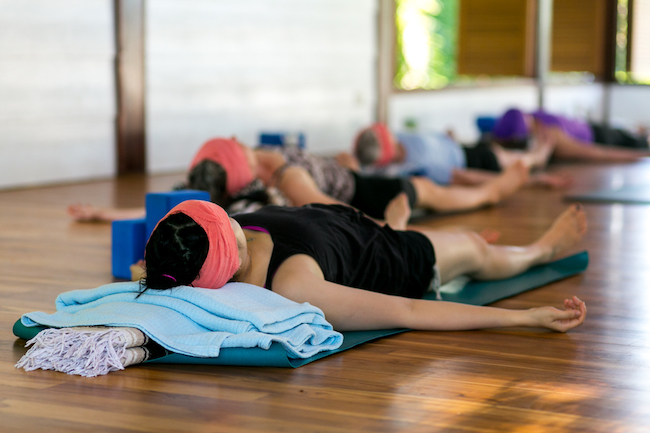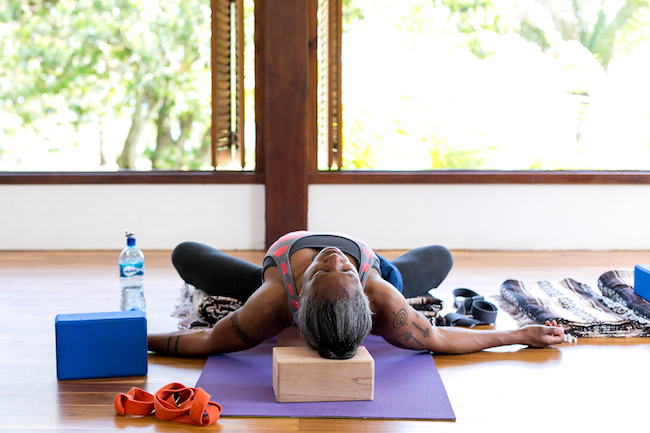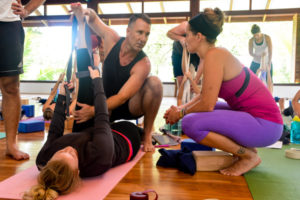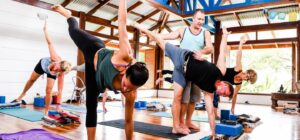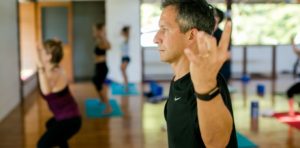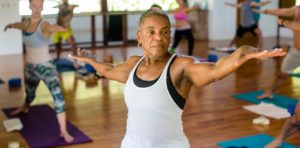The importance and benefits of rest are endless… Much like a battery that needs to recharge, so does the body.
Without rest, the body feels tired and sore, contributing to lower work performance and a decreased ability to function. There are many reasons why we need to rest, beginning with the importance of recharging the body.
Rest allows the mind to function optimally. Learning to relax can be the first step towards the rest of your life – a life of peace and happiness.
From incorporating relaxation techniques into your everyday life to trying out social separation, there are many ways you can encourage your body to rest. But with so much going on in today’s society, rest and recovery are often lacking in our lives. This leads us to feel depleted and tired. If you find yourself feeling exhausted with your everyday routine then this article is for you.
Now is the time to take control of your life. And proper rest will help you achieve the success that you are striving for. Relaxation will encourage you to sit back, breathe and reflect on what is causing you stress. There is always time to make the right decision but why not start now?
Perhaps an escape from your busy life and a personal reset is what you need? Maybe somewhere peaceful by the ocean?
Why Rest and Recovery are Important?
The body is not meant to work 24/7. And if it does, it will become rundown. Much like an overworked machine. Too much work depletes our energy sources making the simplest tasks a challenge. This is why we need to rest – to ensure that our bodies are working to the best of their abilities. For example, consider booking a yoga and spa retreat to help replenish your tired body (and mind). But the importance of rest goes beyond just the physical body. We need to rest mentally as well.
Rest can also help us to practice acceptance. Acceptance can be your road to peace, and taking a break, relaxing, and re-focusing on your life may be the answer to this lifelong journey.
Imagine that you are hiking a mountain with no summit in sight. The days are long, your feet are tired and you feel as though you can’t take another step. Life can sometimes feel the same way. When you are overworked and working tirelessly, every minute can feel exhausting. You might find yourself staring at the clock and feeling as though you are not getting any work done. If so, it’s time to take a break.
Rest Helps Us to Recover
Rest is important because it allows our bodies and brains to recover. By giving ourselves a rest period, we are able to return to our work, feeling recharged and energized.
Much like a bodybuilder takes a rest day to allow muscles to grow, mental rest days allow our minds to relax. Full rest days are important because just like our minds, our bodies need to rest as well. When we take a day off of exercising, we give our bodies the chance to repair torn muscles and recuperate.
In simple terms, rest and recovery are the ceasing of movement and thought to allow our minds and bodies to relax and feel at peace.
Rest and recovery can take on many forms. For example, reading a book for pleasure, going on vacation, or simply closing your eyes and taking a nap- whatever you feel is necessary to help make your body feel at ease.
You might be thinking, but I don’t have time to rest!
Well, let’s explore why rest is crucial for the body.
What Does Rest Do For the Body?
One of the main reasons why rest is essential is because it can help prevent injury. Not just physically but mentally as well. If we are constantly pushing our minds and bodies we risk the chance of hurting ourselves.
Lack of rest increases the chance of injury because we no longer have optimal strength to think and work effectively. When you give the body a chance to rest, you are giving space for restoration. This not only encourages cells to regenerate but also means that when you get back to work you will feel refreshed and rejuvenated.
This is one of the reasons why meditation and yoga are great practices to incorporate into your daily life. If you would like to know more about incorporating these practices into your life, think about this course on A Meditation to Manifest and Live Your Life Purpose.
Rest also affects performance. If you were to work seven days straight, you might feel great the first few days, but by the end, your work performance will have decreased dramatically. This is why we often take the weekends off – to restore the body. Think about how you feel on a Friday compared to how you feel on a Monday. This is why rest days are important.
How Does Rest Help the Body Recover?
Let’s take a deeper look into exactly HOW rest helps the body. Much like hunger, your body has a natural way of letting you know that it needs a rest. It can come in the form of yawning, stinging eyes, or even emotional changes. Do you ever feel more irritated when you are tired? This is your body’s way of letting you know that it needs a break.
If you feel tired, listen to your body. Don’t push yourself to a level of exhaustion.
Constantly pushing yourself to exhaustion will only create more stress, which in turn will harm you further.
Instead, take a break.
Breathe.
Return to life feeling refreshed and rejuvenated.
We need to rest to help the body recharge. When we sleep, we are giving the body a chance to focus on something other than physical movement. During this time, your body will relax allowing the development of the mind to occur. Not only is this great for your memory, but sleep also stabilizes hormones and reduces the chance of health problems. For example, heart disease, high blood pressure, and diabetes. But there are also many other reasons why lack of sleep is bad for your health.
Another way to rest is to take time away from all the blue lights around us. Consider how much you are using screens. Checking your phone first thing in the morning, a computer screen at work, and then Netflix before bed… Have you ever considered a digital detox?
How Much Should You Rest?
The ramifications of not getting enough sleep are endless. So ensuring that you get a proper amount of sleep is essential for an optimally functioning mind and body. However, the amount of sleep will change depending on your personal needs. Most adults need about seven to nine hours of sleep while older adults need closer to seven.
The amount of sleep you need also depends on your activity level and physical health. If you are more active, you will most likely require more sleep to repair torn muscles. Your brain function, mood, and even weight all depend on the amount of sleep you get. So make sure that you time your day to allow for your sleep needs.
If you are having trouble sleeping, there are also many ways to assist with falling asleep faster. Here are some tips to increase your Z’s:
- Try a guided body scan
- Skip the afternoon caffeine fix
- Engage in a relaxing activity like reading or journaling
- Learn how to sleep better with yoga nidra
- Stop using screens such as your phone and TV at least an hour before hitting the hay (This is a tricky one…)
Is it Good to Rest?
The short answer is YES. In today’s modern-day world, many of us are used to constantly being on the go. But do you ever reach the end of the day and realize you were on autopilot the whole time? Slowing down the mind and body enables us to be more present in our everyday lives by encouraging the mind to relax.
Your mind and body are naturally connected. So when you have overworked your mind, your body will feel the ramifications as well…and vice versa. It’s important to balance physical rest as well as mental. It’s important to stay active to keep the body healthy. But try not to overdo it. As a general rule, experts suggest engaging in about 30 minutes of structured exercise a day. This can take the form of running, cycling, or swimming. Alternatively, yoga can be a great practice to incorporate into your everyday life. There are many benefits of yoga, so think about if it would be right for you.
Unfortunately, it has become the cultural norm not to take a break and to work long hours… But this is also why so many people around the world are overworked and exhausted. If you think that you might be one of these people, then it’s time to consider how you can add more rest to your life.
There are also different kinds of rest. Social rest, mental rest, creative rest…even sensory rest. In recent years, sensory exhaustion has been brought to the attention of many experts who have identified how we can become overstimulated. From the sounds of the city to the bright lights of computer screens, sensory exhaustion is something you might be experiencing without even noticing! If sensory exhaustion is something that you think you might be suffering from, here are five ways to include simplicity in your daily living.
Quick Tips to Add More Rest Into Your Life
It may seem counterproductive to take a rest when you have so much going on, but the truth is, rest helps! Taking a rest can be as easy as closing your eyes at your desk or as advanced as jet-setting on a cross-country adventure. Either way, here are some suggestions to add more rest to your everyday life.
- Read a book for pleasure. If you are on vacation, here are 10 Books to Bring to the Beach
- Take a nap if you are feeling tired. Try setting an alarm for 10 to 20 minutes. This type of “power nap” will help you feel rested and rejuvenated. Longer naps may leave you feeling groggy.
- Engage in exercise. Try something new like swimming in the ocean. Here are some reasons why swimming in the sea supports healing.
- Call a friend or loved one for a chat
- Make yourself a cup of tea and stare out a window – let your mind wander.
- Try journaling! If you have never done this before, set a timer for five minutes and write out what comes to your mind.
- Go for a walk outside. Immerse yourself in nature. If you are somewhere you feel comfortable, try walking nude! Here are some tips on How to Become Raw and Naked with Nature
- Get a massage or go to the spa. At Blue Osa, there is a great luxury spa where you can try body scrubs, Thai massages, and even reiki
These tips will not only encourage your body to relax but will also make you more productive. We all want to work more effectively and take advantage of the time we have when we are working. So consider incorporating some of these tips into your life.
Take Effective Breaks
When you are taking a break, make sure that it is an effective one. There is such a thing as an unproductive break. For example, scrolling through social media, browsing aimlessly on shopping sites, and engaging in unhealthy behaviors such as eating too much junk food. Another factor to consider is the type of food you eat.
Maybe your body needs a rest from preservatives and processed foods. Think about how you can incorporate more clean, pure foods into your diet. Take a look at how clean eating is done at Blue Osa. It’s important to think about how you rest so you can be sure that you are working optimally.
Why It’s Time For You to Take a Vacation
Sometimes, adding some extra Z’s and taking a coffee break may not be enough. After working for days, months, and weeks on end, you might be in need of a long rest. This is why so many of us will take a vacation – to escape our daily lives and refresh our minds. If this is something you are thinking about, check out Blue Osa’s Costa Rica Yoga Vacation Packages.
There are so many places around the world where you can vacation. But consider a destination where you believe you will thrive and feel reconnected to your mind and body.
If you want to work well and work smart, then it’s time for you to take a rest. Close your laptop, soften your eyes, make a cup of tea and pick up a book. Not only will resting help you have a better outlook on life but it might also make your days a little more enjoyable.




